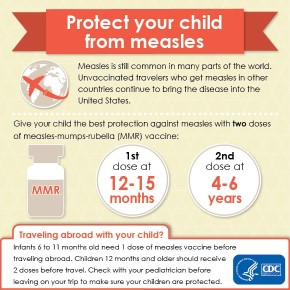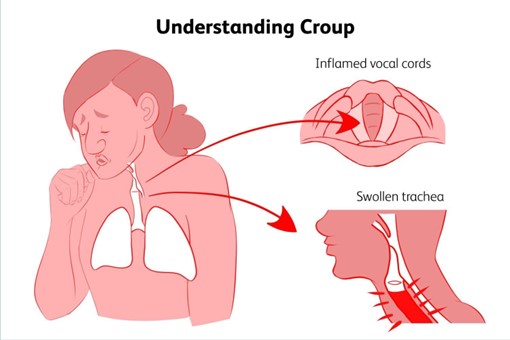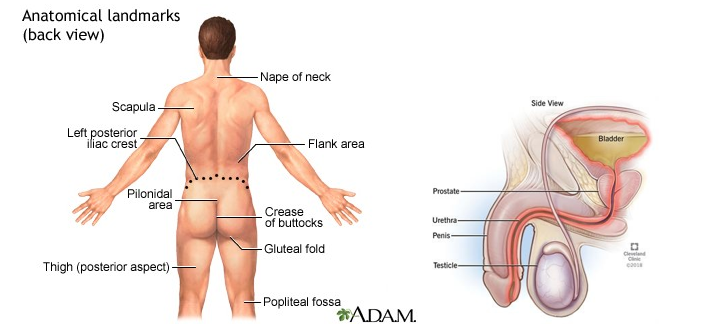The parent of an infant asks when the baby's first immunization for measles, mumps, and rubella (MMR) should be given.
Which age should the nurse provide the parent?
6 months.
12 months.
24 months.
2 months.
The Correct Answer is B
The American Academy of Pediatrics (AAP) and the Centers for Disease Control and Prevention (CDC) recommend that the first dose of MMR vaccine be given at 12-15 months of age.
A. 6 months is too early for the MMR vaccine.
D. 2 months is also too early for the MMR vaccine.
C. 24 months is slightly beyond the recommended range for the first dose of MMR vaccine, which is given between 12-15 months of age.

Nursing Test Bank
Naxlex Comprehensive Predictor Exams
Related Questions
Correct Answer is C
Explanation
When advising a new mother on caring for a child with croup, the telephone triage nurse should prioritize concern for difficulty swallowing secretions. This symptom can indicate that the child's airway is becoming obstructed and requires immediate medical attention. A fever of 101.0°F (38.3°C) is a common symptom of croup and can be managed at home with antipyretics. Crying often when nursing is not a specific symptom of croup and may have other causes. A barking cough, worse at night, is a characteristic symptom of croup and can be managed at home with humidified air and hydration.

Correct Answer is C
Explanation
To determine a possible urinary tract infection in a preschool-aged child who presents with flank pain, dysuria, and low-grade fever, the nurse should gather additional information from the parent about new onset bedwetting. New onset bedwetting can be a sign of a urinary tract infection in children. The other options (A, B, and D) are not directly related to determining a possible urinary tract infection in this situation.

Whether you are a student looking to ace your exams or a practicing nurse seeking to enhance your expertise , our nursing education contents will empower you with the confidence and competence to make a difference in the lives of patients and become a respected leader in the healthcare field.
Visit Naxlex, invest in your future and unlock endless possibilities with our unparalleled nursing education contents today
Report Wrong Answer on the Current Question
Do you disagree with the answer? If yes, what is your expected answer? Explain.
Kindly be descriptive with the issue you are facing.
